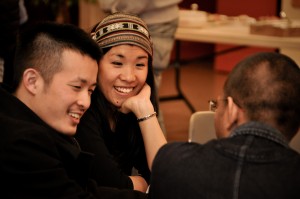There are a multitude of extracurricular activities for anyone interested in participating — sports teams, pub trivia groups, and clubs for nearly every imaginable interest: chess, reading, movie discussions, even zombie awareness (no, seriously: http://zpocawareness.com). While it’s not by any means an absolute necessity to be involved in social groups like these, socialization is important in human development.

But how do I get involved as a Penn State World Campus student, you ask?
Well, for starters you should know that while student organizations typically make up the majority of activities at brick-and-mortar institutions, there are several Penn State World Campus student organizations available to you as well. The Blue and White Society is the student branch of the Penn State Alumni Association, and World Campus offers a Psychology Club and a Technology Club for you to be involved in as well. There is also a military and veteran student organization in the process of being formed (email Maggie at mik5045@psu.edu for more info).
There are also plenty of organizations to get involved with outside of campus — Rotary International, the Lions Clubs, and the Freemasons (of which I am a member) and their subsidiary organizations like the Shriners are all excellent options.
These clubs can offer numerous benefits, particularly for the business-minded among us — the networking benefits of the Rotary are legendary, and Freemasons who wear representative jewelry, clothing, etc., can recognize one another anywhere. Additionally, being able to note involvement in a club can be a great résumé booster, particularly if the party reading your résumé is also a member of that club.
There’s more to involvement in clubs than simply business and personal enjoyment, though. Loneliness is often mistaken for symptoms of depression, and being socially engaged is important for your overall well-being. Some studies show a reduced risk of colds and the flu when engaging in social interaction, while other studies have shown better resistance to more major diseases than the common cold. Even better than that — if you aren’t currently part of a social group and you join one now, you may increase your longevity in the next year in half, according to Robert Putnam in his book Bowling Alone. Who wouldn’t want that?
If those aren’t good enough reasons for you, join a social group because it’s simply good, all-around fun. As I said above, there are a huge variety of social groups for you to join, so there’s almost a guarantee you can find one that suits your interests. So, get out there and find yourself a group to join. It’ll be good for your résumé and your health.



